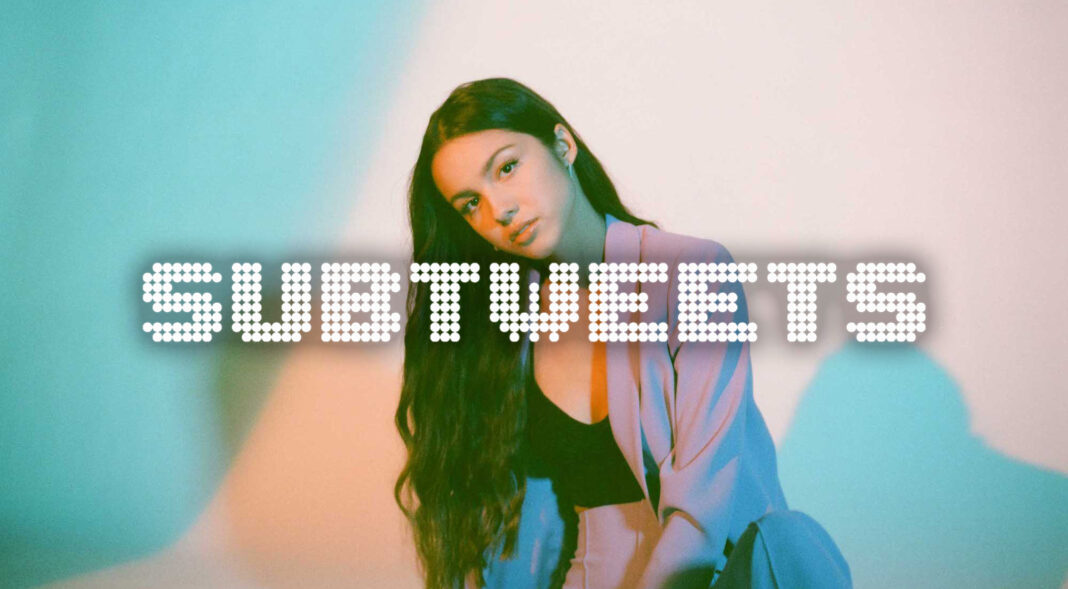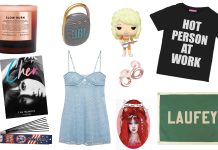For an artist who has made her name writing exclusively about heartbreak, it is no understatement to say that the world has fallen collectively head-over-heels for Olivia Rodrigo. It’s with good reason — as a record-breaking opus of what it means to feel sad over a boy, ‘SOUR’ is an album of impeccable concept, the sort that takes you right back to wonky mirror selfies with a digital camera and writing emo fanfic in your Funky Friends’ diary. It is pure 00s nostalgia, and millennials and Gen Z alike have gone mad for it, the chart-friendly cherry on the top of the recent rock revival.
A slim, heteronormative 18-year-old with a Disney career, Rodrigo’s success conforms to a lot of our expectations of a global pop star. But there is one small subversion that feels intensely promising; Rodrigo is half-Filipino, and although white-passing, her heritage is something that would have been difficult to observe in the upper echelons of 00s alt-girl stardom. From Avril Lavigne and Ashlee Simpson to Lindsay Lohan and Freaky Friday-soundtrack stars Lillix, rebelling against the typical pop sound was often only commercially viable if it was white and skinny and the right kind of subtle-glam that could satisfy a male-gazey, “That chick rocks!” ideal. These women weren’t necessarily fully encouraged, but their presence was tolerated, a gateway for teenage girls to move on to “better” things as they got older. Dads across the nation might sigh at buying a Christina Aguilera doll or a Pop Idol dance mat, but they didn’t mind gifting an Avril Lavigne CD or a Daisy Rock guitar if it would be the beginning of a pathway to all-out alternative rock.
That those women could succeed at all is a real testament to the levels it would take to breakthrough in a market that was noticeably hostile to women. Doubting of their authenticity and frequently incorporating slut-shaming lyricism under the guise of emotional catharsis, new male pop-punk and emo acts were seemingly springing up weekly between the years of 2003-2009, but breakthrough pop-punk women were very few and far between. Visual representation of people of colour was extremely limited; for every Green Day or Blink 182, there was a Fefe Dobson or The Faders who fell by the wayside, who didn’t have a reality TV show or a Disney career to reiterate their presence. For a scene whose sociopolitics were supposedly built on inclusivity and the provision of a safe haven for outsiders, 00s pop-punk certainly had a strong idea of who constituted the ‘right’ type of performer, and the ‘right’ type of fan, all the way down to your chosen hairstyle or the amount of pocket money you had to spend on the right skinny jeans.
Given how readily society has progressed in the last twenty years, it’s perhaps no surprise that the roaring twenties might be looking a little brighter. In the last week alone, teenage Asian-American group The Linda Lindas have announced their signage to the legendary record label Epitaph, a bold step forward given the recent viral content of their protest song, ‘Racist, Sexist Boys’. It is near impossible to imagine a song of this nature drawing anything other than eye-rolls in the mid-noughties, but our increased understanding of allyship and visible representation (not to mention the fact that The Linda Lindas have more talent and charisma than plenty of men twice their age) puts us in a brilliant position to right the wrongs of our past. We know now that being pop-punk doesn’t require a specific pair of Vans on entry, but rather an attitude of no-nonsense truth-telling, the catharsis that it is to wear your emotions fast and loud.
That doesn’t mean that there isn’t still work to be done. While ‘SOUR’ is of course only one young womans’ experience (and her right to express it however she sees fit is vital), it does occasionally dip into the “not like other girls” internalised misogyny that peppered the genre back in the 00s — songs like Paramore’s ‘Misery Business’ and even Pink’s ‘Stupid Girls’ that felt the need to other themselves in order to be accepted in a boys’ world. Rodrigo is smart enough to recognise her own hypocrisies and even pokes fun at herself for it, but the advent of more positive or self-examining anthems like Meet Me At The Altars ‘Garden’ or PinkShift’s ‘I’m Gonna Tell My Therapist on You’ hint at a new way of looking at self-identification and empowerment that doesn’t come at the expense of others.
There’s also sometimes an alienation of subject matter. Although the experience of teen insecurity is universal, it’s important to remember that the specificity of what causes that angst isn’t one-size-fits-all. As one semi-viral Twitter user pointed out, even the nature of being able to relate to something like Rodrigo’s young emotional breakup can be a strange privilege reserved for girls who were perceived as attractive enough in high school to be asked out in the first place; not the nerdy ones, the socially awkward, the ones deemed ‘undesirable’ for their race or size or culturally-strict parents. It is certainly true that dating was pretty much non-existent for me until I went to University, and while this cannot be explicitly linked to racism, I do feel that my lack of the perfect emo fringe or cute-MySpace-girl-popularity may have played their part in these missed formative experiences. Things are getting better slowly, but aspersions are still being classed on people of colour’s authentic belonging in the scene — for WILLOW, an artist whose work has previously slotted more smoothly into alternative RnB, “trend-chasing” accusations of her recent evolution to pop-punk feel hurtful and coded, the sort of comments that are rarely levelled at white artists with quite such conviction.
No singular act or artist is going to be the one to entirely unravel racism or gatekeeping, but as I look around at the plethora of artists that we pop-punk-inclined girls have to choose from — WILLOW, Olivia Rodrigo, Aziya, Big Joanie, Soccer Mommy, Mint Green, Chloe Moriondo, Beabadoobee — I feel hopeful for a future that is so much more diverse and representative than the early noughties could offer, offering intersections of race and gender and sexuality and size and everything in between. I have faith that these young people might be granted the grace to thrive as more than just a transitory bridge between pop and ‘proper’ music, but rather part of a hugely vibrant genre in its own right.
As we stand on the cusp of an time period that could change the entrance boundaries around pop-punk forever, the best thing millennial music fans like me can do is to stan, and to stan hard. Let our leading pop-punk girls of all colours and ages and backgrounds into your heart without shame or embarrassment. Scream ‘brutal’ or ‘t r a n s p a r e n t s o u l’ in front of your bedroom mirror the way your teen self desired, call out the bullshit scene policing you see on Reddit or Twitter. The 00’s revival is upon us, and none of us are too old to make up for lost time. Our parents always said this was ‘just a phase’; it’s never been a better time to prove them wrong.
Every week, Jenessa Williams unpacks the biggest topics setting Music Twitter alight. Dive into even more Subtweets in her weekly column.







